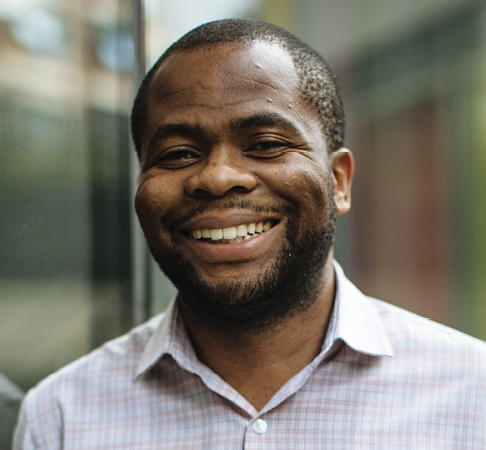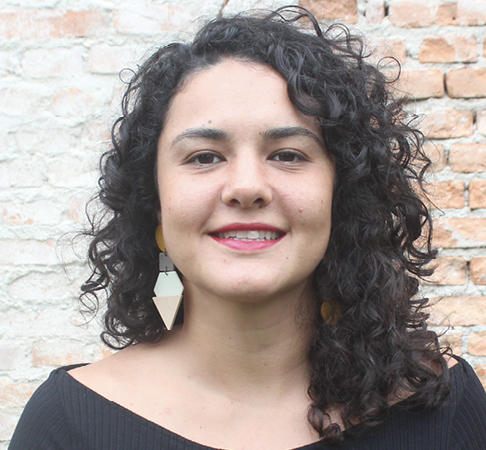How many of you feel worried or concerned when thinking about the rapid pace of technological development?
This was the opening question posed to the audience at the Rhodes Forum on Technology & Society, held at Rhodes House in Oxford on Nov. 2, 2024. Unsurprisingly, most hands shot up. Yet the goal of the day was to shift our perspective — to encourage us to approach advancing technology with curiosity, optimism and a vision of how thoughtfully designed innovations could contribute to societal well-being and global sustainability.
An extraordinary lineup of experts, including Atlantic Fellows Fola Adeleke (Global Center on AI Governance), Georgia Nicolau (Procumum) and Qusai Hammouri (MDus.ai), illustrated the breadth of leadership in this field. Fola and Georgia were invited by Sorina Campean, director of Lifelong Programmes at the Rhodes Trust, following her participation in the inaugural Atlantic Fellows Regional Convening in Nairobi last May. Meanwhile, Qusai, known as "Q," had been selected as a finalist for the inaugural Kevin Xu Innovation Challenge, a new feature of this year’s forum.
The event opened with a keynote from Patrick Pichette, Lifelong Rhodes Scholar and partner at Inovia Capital, who highlighted technology's transformative potential, tracing a path from the bow and arrow to nuclear power. Pichette’s call to action was simple yet resonant: “Choose to work for the right company.” His comparison of tech philosophies in C-Corp and B-Corp models (think Candy Crush vs. Wikipedia) underscored the profound influence that vision-driven tech can have on society.
The session Data Defenders: Keeping Cyber Threats at Bay ventured into the high-stakes world of cybersecurity, with Atlantic Fellow Fola Adeleke addressing issues like data colonization and the societal risks of unchecked data use by big tech. Drawing parallels with historical patterns of exploitation, he advocated for responsible AI development, championing initiatives like the Global Index on Responsible AI to measure governmental commitment through technical, social and political lenses.
New Horizons, Reasons to Love the Future inspired attendees to embrace a pluralistic view of the future, urging us to think about what’s possible and act with intention. Biomimicry — solving complex challenges by mimicking nature — was highlighted as a stimulus for innovation. The panel stressed that closing gaps in accessibility to electricity and technology for those with disabilities, requires diversity among technology creators, as lived experience shapes the most meaningful solutions.
The Outlook on Community Spaces: Designing Sustainable Environments panel explored how technology can revolutionize infrastructure and public spaces to foster inclusivity. Drawing on her experience with Brazil's Citizen Labs, Atlantic Fellow Georgia Nicolau advocated for citizen-led policy, democratized advocacy and polycentric networks to empower communities.
During the plenary session, finalists for the Kevin Xu Innovation Challenge on Lifelong Learning in the Age of AI presented projects ranging from legal skills training to digital literacy for Igbo elders in Nigeria and, from Atlantic Fellow Q Hammouri, a personalized AI-powered tool aimed at improving patient education and health equity. The room erupted in applause when Q won the competition.
The day concluded with a powerful keynote from Anna Rosling Rönnlund, co-author of Factfulness (2018) and co-founder of Gapminder. Her data-driven presentation highlighted positive global changes, including the dramatic reduction of child mortality and the decline in global poverty — a refreshing reminder of the progress often overlooked.
Key takeaways? The event underscored how the partnership between the Atlantic Institute and Rhodes Trust amplifies vital conversations, bringing Atlantic Fellows' voices to a wider audience. Misconceptions about technology as a male-dominated field were thoroughly dispelled by the extraordinary women leading discussions. And above all, the forum reminded me that innovation thrives in networks — and if we don’t envision a future we can embrace, we risk losing it.
When asked at the close of the day, “How many of you feel more optimistic about the future of AI?” nearly every hand went up.
Enough said.









.png)

